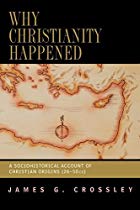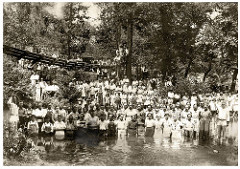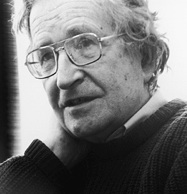 There’s a lot I like about James Crossley’s publications. I found myself relating in many ways to his views expressed in “Jesus in an Age of Terror”. We have a lot in common politically, and I share some of his views on the peculiar scholarship that Christian dominance of biblical studies has generated. I have referred to his observation on the relationship between a scholarly emphasis on the Jewishness of Jesus and broader socio-political changes since World War 2 , alongside April DeConick’s similar views of the evolving treatment of Judas in the same context, and built on both of these to suggest a similar explanation for the post War changes in scholarly views on the evidence of Josephus for Jesus.
There’s a lot I like about James Crossley’s publications. I found myself relating in many ways to his views expressed in “Jesus in an Age of Terror”. We have a lot in common politically, and I share some of his views on the peculiar scholarship that Christian dominance of biblical studies has generated. I have referred to his observation on the relationship between a scholarly emphasis on the Jewishness of Jesus and broader socio-political changes since World War 2 , alongside April DeConick’s similar views of the evolving treatment of Judas in the same context, and built on both of these to suggest a similar explanation for the post War changes in scholarly views on the evidence of Josephus for Jesus.
I have also appreciated his calls for far more involvement of traditionally nonbiblical methodologies to be applied to biblical studies. However, here I only go along with half his proposal. Crossley expects nonbiblical scholars to engage seriously with the insights of Christian scholarship (p. 33 of Why Christianity Happened). There are many insights worth serious attention.
What Crossley is calling for is an application of secular models and explanations for the origins of Christianity. A history of ideas and theology needs to take second place to hard economic and social realities as dynamics that explain Christianity. Fair enough, but I see a bigger problem with Jesus studies that Crossley overlooks.
What needs addressing are flawed methodologies and assumptions that would never be tolerated in historical studies of other academic disciplines, and that even Crossley appears to accept without question.
I get these out of the way first before going on to discuss the specifics of his socioeconomic explanation for the rise of Christianity.
The fallacy underlying nearly all historical Jesus studies
Hobsbawm on method
Crossley draws in part on insights of the renowned historian Eric Hobsbawm’s studies of bandits and bandit culture in South America. But Hobsbawm’s statements about methods for evaluating sources and determining whether or not a narrative (whether oral, written or even an eye-witness report) has any historical basis to it, ought to embarrass any and all biblical historians who study the Gospel narratives with the assumption they must contain some historical core.
In no case can we infer the reality of any specific ’social bandit’ merely from the ‘myth’ that has grown up around him. In all cases we need independent evidence of his actions. (p.142)
From p.24 of A Contra Corriente: a Journal on Social History and Literature in Latin America (2004)
Schweitzer on method
This echoes a remark by Albert Schweitzer about the presumption of historicity that cannot be brought to the Gospel narratives about Jesus simply because they lack “independent evidence” or external controls:
Moreover, in the case of Jesus,. . . there are no data available in Jewish or Gentile secular history which could be used as controls. Thus the degree of certainty [of there being a historical basis to the narratives] cannot even by raised so high as positive probability.
From page 401 of The Quest of the Historical Jesus, 2001, by Albert Schweitzer.
This basic principle is really simple logic and normal “street smarts” and should not even be controversial. But when it comes to the studies of Jesus, my experience tells me it is very controversial, so controversial that it is silenced and excluded from the discussion, or scorned and ridiculed if it intrudes.
Davies on method
It was controversial when applied to “Old Testament” studies by Philip R. Davies in 1992. Back then he argued in a ground-breaking monograph, In Search of Ancient Israel, that we need to confirm the events of the Bible independently of the Bible itself. This means comparing the Bible record with other historical records. It is naïve to take any book, the Bible included, at face value. We need supporting evidence to know when it was written and if its stories have any truth behind them. (See my outline of notes from Davies’ book on my vridar.info website.)
Schwartz on method
And I never tire of reminding anyone willing to listen that this basic method of determining historicity of a narrative was warned about way back in 1904:
only in special cases does there exist a tradition about a given literary production independent of the self-witness of the literary production itself; and that the person who utilizes a literary-historical tradition must always first demonstrate its character as a historical document. General grounds of probability cannot take the place of this demonstration.
from an academic paper delivered in 1904 by E. Schwartz: cited in a 1991 chapter by Luise Abramowski titled “The ‘Memoirs of the Apostles’ in Justin” pp.331-332 published in “The Gospel and the Gospels” ed. Peter Stuhlmacher.
The exceptionalism of biblical/Jesus studies
So why do nearly all historical Jesus or Christian origin studies begin with the assumption that the Gospel narrative, without any independent evidence or external control, contains evidence of real history?
How is it that scholars of biblical studies can get away with declaring a particular action or saying as “historical” ultimately on the basis that they can’t think of a reason why anyone would just make it up, or that it is so embarrassing (to somebody, usually the author, although we don’t know who the author was) it must be true?
How is it that in the case of the Gospels, scholars can determine what is “historical” solely on the basis of analyzing the narrative details themselves and comparing these details with what we know from independent sources of the geographic or other background setting of the narrative?
Can anyone imagine Eric Hobsbawm declaring a particular bandit to have been genuinely historical on the basis of this sort of analysis of a written narrative? Goodness, he had a reputation to maintain!
The need for independent attestation of the Gospel narrative does not exist with this area of biblical studies.
Why does it appear that biblical studies, in particular any studies relating to the Gospel narrative, are exempt from the norms that require independent witness to verify their historical status?
But this is just the beginnings of what I find lacking in Crossley’s attempt to find a socioeconomic cause for the birth of Christianity.
Peasant Unrest and the Emergence of Jesus’ Specific View of the Law
This is the title of Crossley’s second chapter, and where I begin with this post. This title indicates that there is something unique or special about Jesus’ particular view of the Law that can be directly explained as a response to the socioeconomic conditions of Galilee. However, in his explanation, he grants that the same “specific view of the Law” is one found “deeply embedded in the Pentateuch, biblical tradition, and post biblical tradition”. So I am forced to wonder what was so “specific” about Jesus’ view that requires a particular socioeconomic situation to explain.
Jesus’ view of the law reflected a key aspect of his general teaching: the immense problems that come with socioeconomic inequality. The relationship between socioeconomic reality and the Torah is quite explicit in such texts as Mark 10:17-22 and Luke 16:19-31. These related concerns are not difficult to find in Jewish law: they are deeply embedded in the Pentateuch, biblical tradition, and post biblical tradition. But why do such concerns run consistently and densely throughout Jesus’ teaching? Why specifically did Jesus’ concerns emerge when and where they did? These questions are crucial because Jesus emerged at a time and in a place of socioeconomic upheaval that eventually resulted in full-scale revolts against Rome. (p. 35)
Continue reading ““Why Christianity Happened”. Reviewing chapter 2 of James Crossley’s book”
Like this:
Like Loading...
 Earlier I reviewed chapter 2 of Why Christianity Happened by James Crossley, and here I look at his final chapter (5), “Recruitment, Conversion, and Key Shifts in Law Observance: The Origins of the Pauline Mission“.
Earlier I reviewed chapter 2 of Why Christianity Happened by James Crossley, and here I look at his final chapter (5), “Recruitment, Conversion, and Key Shifts in Law Observance: The Origins of the Pauline Mission“.



